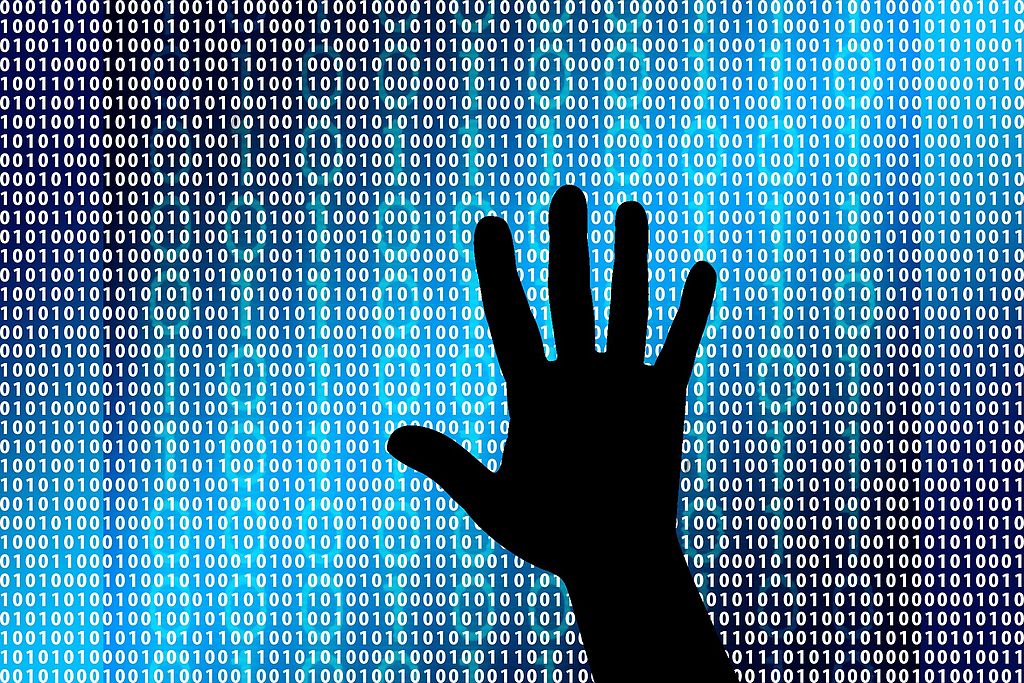The TikTok Ban Is Terrible. But Courts Should Not Overturn It as Unconstitutional.
Overturning the law on First Amendment grounds would require courts to make policy judgments that should be left to the political branches.

Published by The Lawfare Institute
in Cooperation With

The TikTok ban or divestment requirement abandons the U.S. commitment to a free and open internet as well as decades of U.S. communications policy that prioritizes “the widest possible dissemination of information from diverse and antagonistic sources.” Companies under the control of foreign adversaries can be barred from participating in the U.S. public sphere for the sole reason that they might “push misinformation, disinformation, and propaganda on the American public,” as the House report accompanying the TikTok law says. This government censorship exhibits a convergence between the United States and China in an area where the U.S. should be seeking to highlight a crucial distinction.
Moreover, the law is a terrible idea because it is based on and reinforces the current U.S. policy toward China, which is dangerously confrontational. Treating China as a mortal enemy that must be overcome at all costs has led naturally to the exclusionary law aimed at TikTok. It could lead to much worse, including nuclear conflict over Taiwan—which a recent report from the Atlantic Council suggests the U.S. should threaten as a response to a Chinese invasion.
But the remedy should not be a rejection of the law on constitutional grounds. Current First Amendment jurisprudence already constrains tech policy far too tightly. Policymakers are confronting this judicial hubris that prioritizes speech rights over all other rights as they seek to protect children’s online safety, regulate artificial intelligence, and impose new pro-competition restraints on digital companies. A court rejection of the TikTok law would only solidify this type of judicial overreach in the First Amendment area.
What could the U.S. do instead of a ban on TikTok and instead of a court rejection of the ban? Perhaps a reasonable precaution in light of the intensity of the current geopolitical rivalry with China would be to mandate data localization, algorithmic transparency, and regulatory oversight over the U.S. operations of TikTok, which TikTok agreed to as part of its proposed Project Texas.
But even this should be viewed as an aberration from the U.S. free speech norm. An exemption for communications companies from presidential authority to control economic activity in the name of national security—modeled after the Berman amendments to the International Emergency Economic Powers Act (IEEPA)—might make good policy sense, given the importance of a free and open domestic information space.
Courts Should Not Overturn the TikTok Law
I have argued that, despite the weakness of the TikTok law on policy grounds, courts would not be likely to strike it down. It has a precedent in the ban on foreign ownership of broadcast properties; it can be justified as protection against foreign surveillance, rather than as a content-focused effort to limit foreign propaganda, and courts rarely challenge laws justified on national security grounds. Alan Rozenshtein, a law professor at the University of Minnesota, has argued in a similar fashion that the law “has a strong chance of surviving First Amendment review.”
But not only are courts unlikely to overturn the law. They should not overturn the law. Overturning this law requires judges to second guess the considered national security and foreign policy judgments of the intelligence community, a bipartisan Congress, and the president—abandoning what Rozenshtein describes in a later article as the traditional “non-trivial deference to the reasoned national security and foreign policy judgments of the political branches.” If courts were to strike down this law, it would be hard to conceive of a policy area that would be safe from First Amendment judicial overreach. The First Amendment is already widely misused as a shield against tech policy regulation. Overturning the TikTok law would turbocharge this misuse of the First Amendment.
Overturning the TikTok law would mean that courts have decided either that the national security concerns cited in passing the law are not sufficiently important to outweigh the speech interests at stake, or that the connection between the TikTok law and the relevant national security concerns is too weak to justify limiting speech. But to make either of these decisions, courts must act as substantive policymakers, not judges, in an area where they have limited institutional competence. They must wade into the details of foreign and national security policy and insist that their views on these matters are more reasonable than the views embraced by the intelligence community, Congress, and the president.
Of course, First Amendment review normally delves to some degree into how important a policy is to advance a particular government interest. But as explained below, the extent of judicial policy analysis needed to overturn the TikTok ban is far beyond what is legitimate and necessary.
One avenue courts could pursue in overturning the law would be to make a judicial finding that while national security is a vital national interest, there’s no substantial evidence that TikTok’s Chinese ownership is a threat to national security because there is no public evidence that TikTok currently engages in surveillance or propaganda. But to draw this conclusion, a court must make at least one of two startling judgments: (a) that the government is powerless to take action against a security vulnerability until an adversary exploits this weakness to do actual harm to national security or (b) that courts, and not Congress, have the authority to determine when the severity of a national security threat necessitates a policy response.
One variant of this second argument (that courts are the appropriate bodies to evaluate the severity of the national security threat) is that the intelligence community, the president, and Congress are wrong to think of China as a significant adversary. If China were simply an economic rival, then having TikTok under its jurisdiction would pose less of a national security threat to the United States. I take this position myself, and more policymakers should adopt it. And I do think it undermines the case for closing the U.S. information space to Chinese companies. But that is not a decision courts should make. In the U.S. system, those judgments about which foreign countries are adversaries whose reach into the U.S. information space is worth limiting are reserved for Congress and the executive branch. The process for making and modifying those determinations does not run through the judicial system.
The courts could also take the position that Chinese ownership of TikTok creates a compelling need for measures to control the threat to national security but that the law goes too far. Matt Perault, law professor at the University of North Carolina, has argued persuasively that Project Texas, with its mandate for data localization, algorithmic transparency, and regulatory oversight, was improperly ignored in the congressional debate over the law. Perault also notes that TikTok has already gone a long way toward implementing these protections, including placing a “shut-down option” in the hands of the American technology company Oracle.
Project Texas, or something like it, the courts could conclude, is sufficient to mitigate the risk. But this too represents an improper intrusion of the judiciary into the national security and foreign policy space. How does a court know that these administrative measures would work? TikTok’s filing in its appeal of the ban notes that the Committee on Foreign Investment in the United States (CFIUS) rejected a draft agreement to resolve national security concerns without providing any justification for why the agreement was inadequate. But it seems clear that it did so because it believed that those charged with administering such a system could not use the proposed measures effectively enough to constrain China’s attempts to spy and manipulate. What do the courts know that the national security agencies charged with mitigating threats to the nation do not know?
Of course, courts have a vital role in reviewing laws affecting speech. There is no irrebuttable exception to the First Amendment for national security. No mere assertion of national security interests is enough to justify a court rubber stamping a measure that constrains speech the way the TikTok law does. Imagine for instance that the government passed a law requiring the New York Times and CNN to be sold to new owners acceptable to the president or cease operations. The government could argue that such a law is necessary to protect national security since these outlets could one day cover the news in a way that advanced the interests of China and undermined the interests of the United States. But the courts would be well within their traditional oversight role to overturn such a hypothetical law on the basis that the stated grounds were so outlandish that no reasonable person could accept them and that they were transparently pretextual for the real and impermissible motive of censoring the speech of political opponents.
But that is not what is going on in the TikTok case. Policymakers have identified a plausible way for a country they deem to be a foreign adversary to exploit a vulnerability in the U.S. information space to the detriment of U.S. interests. Eliminating a detected security risk is the common way of dealing with it.
Next Steps
The TikTok ban is a terrible idea, but legislative adjustment—not court intervention—is needed. Congress has in the past explicitly carved out communications companies from measures designed to protect vital U.S. interests. The 1977 International Emergency Economic Powers Act gives the president enormous powers to regulate foreign transactions and companies that pose a threat to “the national security, foreign policy, or economy of the United States.” This IEEPA authority was the legal basis for former President Trump’s attempt to ban TikTok in 2020. But the original 1977 law exempted “any postal, telegraphic, telephonic, or other personal communication, which does not involve a transfer of anything of value.” And amendments to IEEPA in 1988 and 1994 sponsored by former Rep. Howard Berman (D-Calif.) explicitly excluded “any information or informational materials” from IEEPA’s clutches. As a result of these exceptions to IEEPA, the courts rejected President Trump’s attempted TikTok ban as exceeding his authority.
When Congress adopted the TikTok law, it took the opposite approach from that in the Berman amendments by explicitly targeting a communications company. But the advantages of a free and open communications space substantially outweigh the need for censorship of foreign adversaries in all but the most extreme conditions of active warfare. New legislation could embody this idea. A legislative effort to amend this law to delete references to particular companies and to create an exception for communications companies modeled on the Berman amendments might be a worthwhile public campaign for civil libertarians and human rights groups to undertake. It would be unlikely to succeed, however, in the current U.S. climate of opinion toward China.
A broader next step would be to work toward a less confrontational China policy. Focusing on China as a mortal enemy to be confronted and defeated makes legislative attacks on communications companies seem reasonable and necessary and could justify much worse, as current discussions, noted above, of the nuclear option in a war with China over Taiwan make clear. Groups such as the Quincy Institute are leading some new thinking on how to reduce tensions with China while still confronting it as a peer economic competitor. A more realistic and less confrontational policy toward China would reduce the threats to speech represented by the TikTok law.




